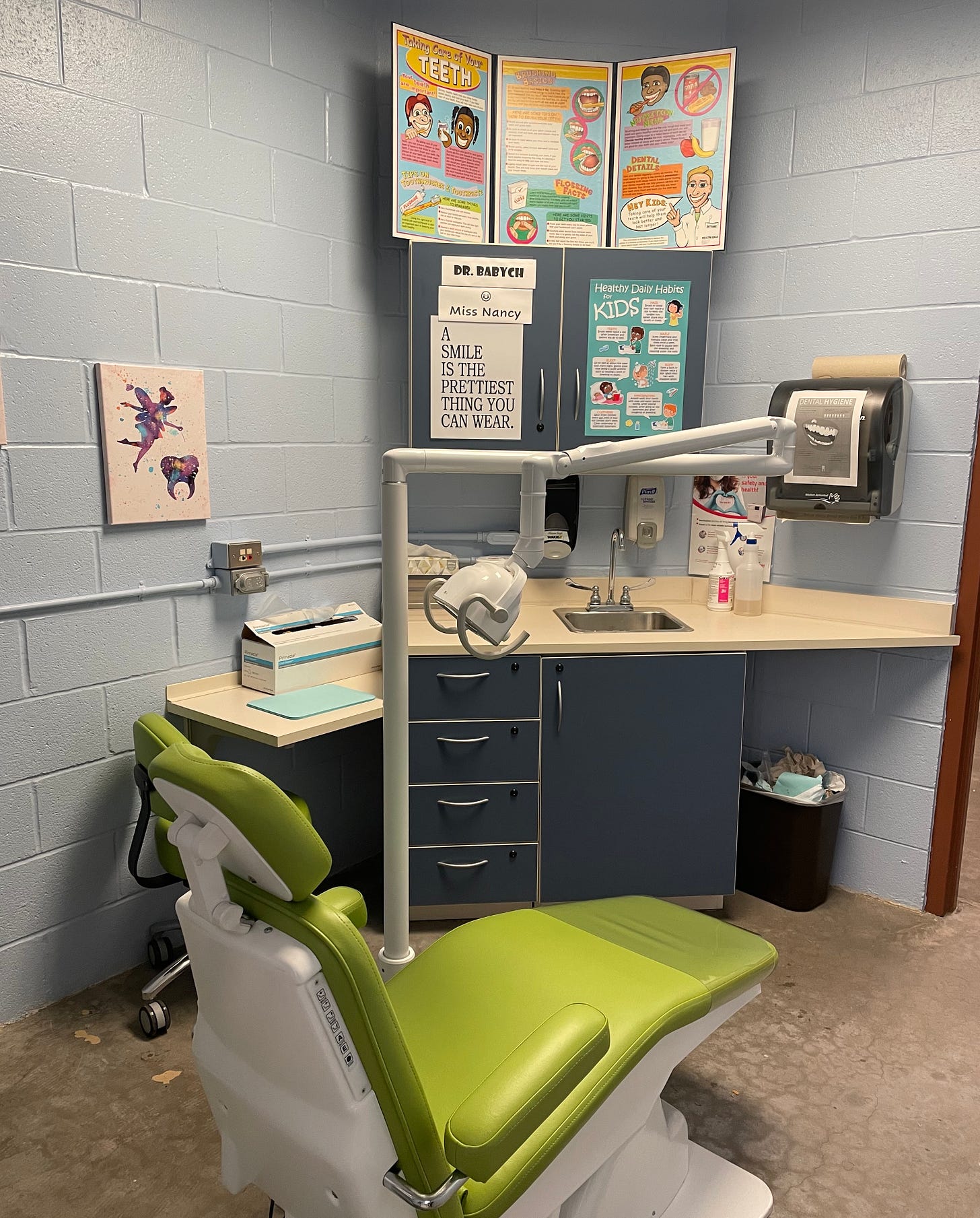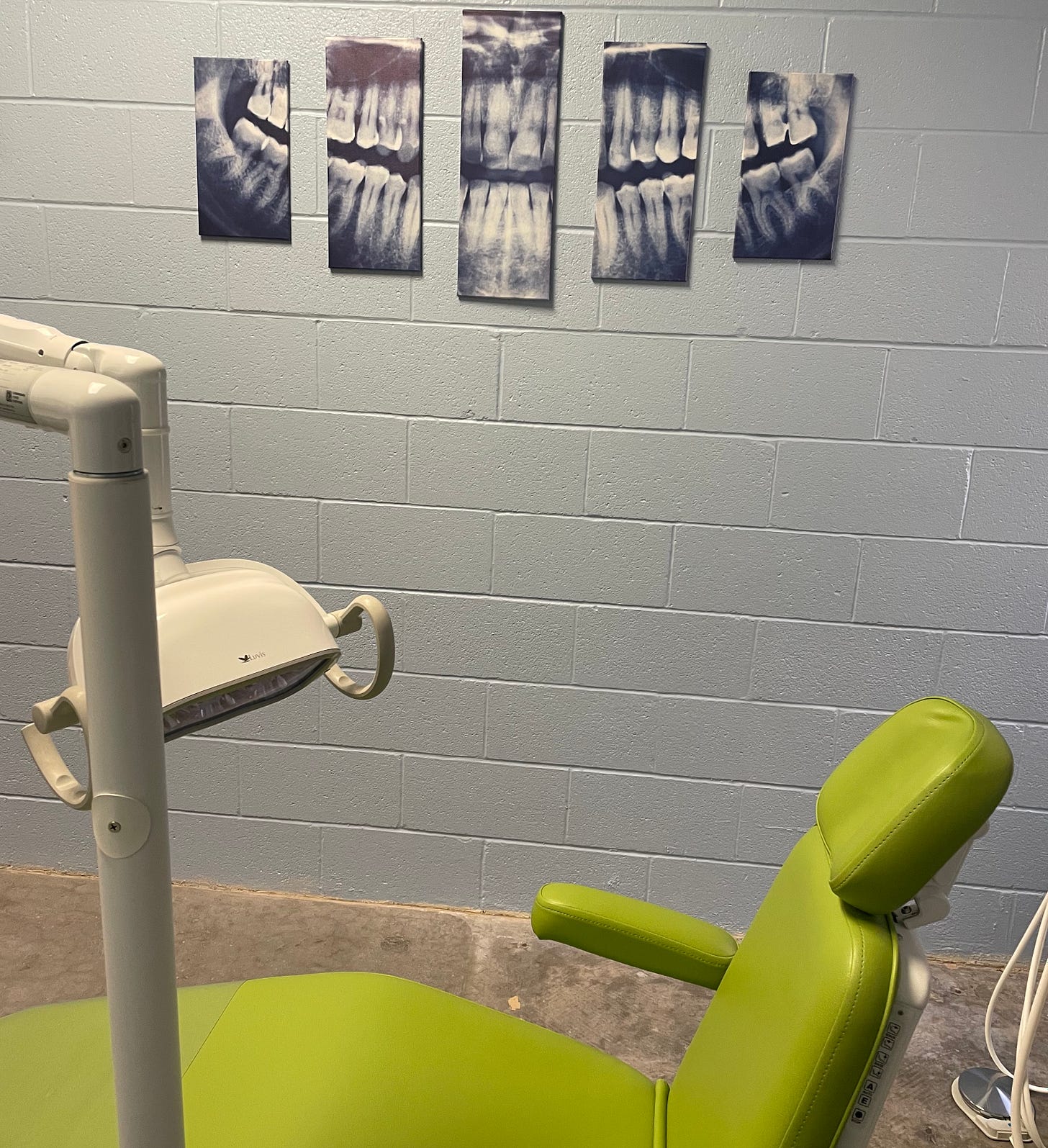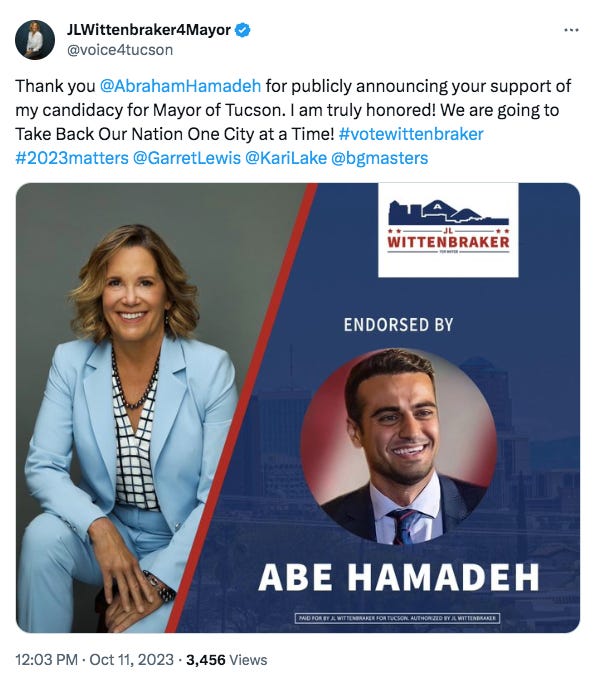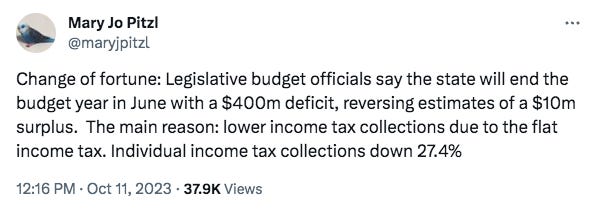The Daily Solution: Something to smile about
It’s never been easy for kids in juvenile detention to go to the dentist … So the county is bringing the dentist to them … Asteroid rocks arrive to UA.
We told you in our monthly update that we’d be experimenting with new formats and we’re starting today.
We’re committed to solutions journalism being a regular part of the Tucson Agenda’s coverage, so we want to make sure you can easily spot these types of stories, starting with the headline.
For those who are unfamiliar with the term, solutions journalism is reporting on responses to social problems. It intends to rebalance news coverage and focus not just on problems but on potential solutions to those problems.
Caitlin created a solutions beat at the Arizona Daily Star and while that’s no longer up and running, it’s alive and well at the Tucson Agenda.
A year ago, seeing a dentist was a difficult and even dehumanizing experience for kids and teens being held at Pima County’s Juvenile Detention Complex.
Getting a guardian’s permission for an off-site appointment was a complicated process and the patient had to wear shackles and be accompanied by a corrections officer during the visit.
And even though the complex only houses about 20 youths at a time these days, county officials have long been looking for a way to simplify the process and turn visiting the dentist into a positive experience.
Thanks to a $100,000 grant from the American Rescue Plan Act, they’ve finally been able to do that, with last year’s rollout of the Juvenile Correctional Dental Program.
“It was more of a challenge than you can imagine,” Correctional Health Program Manager Linda Everett said of the previous process of getting a kid out of the complex to see a private dentist.

And that option was only available when parents or guardians had dental insurance, which Pima County Behavioral Health Director Paula Perrera said many didn’t.
“A lot of kiddos don’t have this kind of health insurance,” Perrera said. “So this might be the only dental care they receive, period.”
The ARPA funds were used to purchase a dental chair, X-ray machine, lighting, and equipment and to hire a full-time dental hygienist and part-time dentist to perform cleanings and small procedures in a dedicated dental suite.
“We can start giving them the learning experience that dental care is very important and not so scary,” Everett said. “Hopefully those positive experiences will continue into the future.”
The unit opened at the end of 2022 and 100% of the 25 kids and teens that have come through the complex since have seen the dentist and received care and education about the importance of oral health, according to NaphCare, the health care provider for both the adult and juvenile corrections centers.
Most kids just receive exams, cleaning, fluoride treatments and X-rays, but some have also needed extractions and fillings, which can also be performed on-site.
Everett said the program’s dental hygienist has been key to its success, since she goes slowly with the kids and communicates every step of each procedure as it’s happening.
Research has shown that solutions journalism helps readers feel better informed about issues and more optimistic about the potential for change. Why not share our work with a friend?
Pima County Juvenile Justice System Improvement Specialist Shannon Kinne called the program a wonderful service, saying there’s never been an on-site dentist in her 21 years with the county.
“I think a lot of the time, (kids) don’t have the history of why they need to take care of their teeth and what can happen as an adult if you don’t,” Kinne said. “So the dentist and hygienist are hitting on topics they’ve not heard or thought of.”
The dental work can also help boost some kids self-esteem, according to Kinne.
The dental suite’s design was also intentional. With educational posters on the walls, the reclining chair and overhead lights, the room looks just like a regular dentist’s office, Kinne said.
“It takes them from feeling like they’re locked up to, ‘I’m at the dentist,’” she said.
The ARPA funding is also allowing the county to purchase portable equipment to bring to the adult detention center and more easily treat juveniles who have been charged as adults.
While there’s a dentist at the adult detention center, juvenile detainees have to be kept out of sight and sound of adult inmates, which means the dental unit has to be shut down and cleared when even one teenager needs to be treated, Everett said.
“The push now is to deliver these services (directly) to the (separate units that juveniles are) housed in, but we’re realizing we need additional equipment to make it happen,” Everett said.

The juvenile detention center has also implemented an immunization program for kids or teens who are missing or have late vaccinations, which is federally recognized as a Vaccine For Children site, meaning the county can buy vaccines at a reduced cost.
This helps create sustainability for the program, Perrera said, adding that the county is in the process of doing the same thing in the main jail.
“(ARPA funding) was a once-in-a-lifetime opportunity, and we’re trying to leverage that for as much as we can,” Perrera said.
And while many county and city programs are facing a deadline to use ARPA funds and build sustainability into programs created with the money, that’s not a problem for the dental program.
Now that the county owns the necessary equipment and has a dental clinic on-site, the services will go on for many years to come, which behavioral health director Perrera and others called a dream come true.
“Why not send a kid home with the best service they could have gotten?” Kinne asked.
Quite a trip: After a journey of 4 billion miles, the samples taken from the Bennu asteroid are being studied at the University of Arizona, the Arizona Daily Star’s Henry Brean reports. The mission ended up gathering about nine ounces of rock and dust, which was four times what scientists expected to gather. The samples are about 4.5 billion years old and researchers hope they will shed light on the origins of the solar system.
How sweet it is: The Sweetwater Wetlands Park is a beautiful, although often overlooked, natural spot in Tucson. Arizona Public Media’s Katya Mendoza weaves together the natural and engineering worlds as she looks at what a decade of water flowing in the Santa Cruz River has done for the vegetation and wildlife that call the park home.
“We’ve had beautiful, clean water flowing into the Santa Cruz, to the point that endangered fish species have come back,” Luke Cole, Director for Resilient Communities and Watersheds at the Sonoran Institute, said. “We’ve had dragonfly population numbers, bird counts, everything is up because the water quality is excellent and steady.”
Banding together: The humane societies in San Diego and Southern Arizona are joining to hire a private investigator to get to the bottom of what happened to about 250 small animals that went missing after they were transferred from San Diego to Tucson, AZPM’s Danyelle Khmara reports. You can read their full statement at KVOA.
Hearing from the candidates: Republican mayoral candidate Janet Wittenbraker talks with KGUN9’s Craig Smith about her plans for the city if she’s elected. It’s one of a series of interviews KGUN is doing with mayoral candidates.
Civil debate: A public meeting in Patagonia got heated when residents gathered to talk about how the new Hermosa Project mine would affect their town, the Patagonia Regional Times’ Kat Crockett and Marion Vendituoli reported. The ensuing debate led to a memorable lede to their story.
“Commotion, confusion, complicated engineering charts, public outcry, and a call for back-up deputies dominated an Open House event hosted by Supervisor Bruce Bracker and County Manager Jesus Valdez on September 28 at Cady Hall in Patagonia,” they wrote.
Voting questions: The deadline to register to vote in the Nov. 7 elections was Tuesday. The Pima County Recorder’s Office is handling the elections and Recorder Gabriella Cázares-Kelly put together a page to answer frequent questions about the voting process.
$400 million: The projected deficit of the state budget.










Wow, endorsed by “Honest Abe”! I guess we can expect a couple years of Wittenbraker claiming to be “the rightful mayor of Tucson” after she loses by 30-40 points.